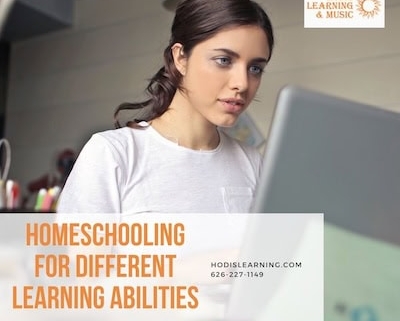Homeschooling for Different Learning Abilities
Homeschooling offers a unique and flexible educational environment that can be tailored to meet the diverse learning needs of every child. This personalized approach is especially beneficial for students with different learning abilities, as it allows parents to customize the curriculum and teaching methods to fit their child’s strengths, challenges, and interests. Here’s a comprehensive guide on how to effectively homeschool children with various learning abilities.
Understanding Different Learning Abilities
Children have different learning abilities and styles, including auditory, visual, kinesthetic, and reading/writing preferences. Some may also have specific learning challenges such as dyslexia, ADHD, or autism. Understanding these differences is the first step in creating an effective homeschooling plan. It’s important to observe and assess your child’s preferred learning style and any challenges they may face to tailor your approach accordingly.
Creating a Customized Curriculum
The beauty of homeschooling lies in its flexibility. You can design a curriculum that suits your child’s unique needs and pace. For children with learning disabilities, consider incorporating multisensory learning techniques, which engage multiple senses and can enhance understanding and retention. For example, using visual aids, hands-on activities, and auditory materials can make learning more accessible and enjoyable.
For children who excel in certain areas, homeschooling allows you to advance their learning at a faster pace. Conversely, for subjects that are more challenging, you can take the time needed to ensure mastery before moving on. This individualized approach helps in building confidence and reducing frustration.
Incorporating Assistive Technologies
Technology can be a powerful tool in homeschooling, especially for children with learning disabilities. Assistive technologies such as speech-to-text software, audiobooks, and educational apps can provide additional support and make learning more engaging. Online resources and interactive programs can cater to different learning styles and offer varied ways to grasp complex concepts.
Adapting Teaching Methods
Adapting your teaching methods to suit your child’s learning abilities is crucial. For visual learners, incorporate charts, diagrams, and videos into lessons. Auditory learners benefit from listening to lectures, discussions, and using rhymes or songs to memorize information. Kinesthetic learners need to engage in hands-on activities and experiments to grasp concepts effectively.
For children with ADHD, short, focused sessions with frequent breaks can help maintain attention and interest. Using a timer for activities can create a sense of urgency and help manage time effectively. Creating a quiet, distraction-free learning environment can also enhance concentration.
Fostering a Supportive Learning Environment
A supportive and positive learning environment is essential for all children, especially those with learning disabilities. Celebrate small victories and provide regular encouragement to build self-esteem and motivation. Be patient and understanding, and be willing to adapt your approach as needed.
Socialization is another important aspect of homeschooling. Join homeschooling groups or co-ops where your child can interact with peers and engage in group learning activities. This helps in developing social skills and provides a sense of community.
Seeking Professional Support
Don’t hesitate to seek professional support when needed. Educational consultants, special education tutors, therapists, and expert homeschool educators like those at Hodis Learning & Music, can provide valuable insights and strategies to enhance your homeschooling efforts. They can also help in identifying any underlying issues and suggest appropriate interventions.
Keeping Records and Assessing Progress
Maintaining detailed records of your child’s progress is important in homeschooling, especially for children with different learning abilities. Keep track of the curriculum covered, assignments completed, and any assessments or evaluations. Regularly review and adjust the learning plan based on your child’s progress and needs.
Conclusion
Homeschooling offers an unparalleled opportunity to provide a tailored and effective education for children with different learning abilities. By understanding your child’s unique needs, incorporating diverse teaching methods, utilizing assistive technologies, and fostering a supportive environment, you can create a successful homeschooling experience that nurtures their potential and fosters a love for learning. Remember, the key is flexibility and adaptation, ensuring that your child’s educational journey is both enriching and enjoyable.
If you’re considering homeschooling for your child, Hodis Learning & Music offers expert guidance and customized homeschool education programs designed to meet the needs of every learner. Call us or submit a form on our website today to learn more about how we can support your homeschooling journey.



